Constipation in dogs is a most important and common health problem in dogs, and it means the inability to pass a normal stool regularly. On the other hand, constipation is absent, infrequent defecation associated with feces’ retention within the colon and rectum. The conditions may occur for various reasons, and some of the most common reasons are diet, metabolic, drug-induced, etc.
What Causes Constipation?
The principal causes of dog constipation are as follows:
- Dietary causes of constipation: ingested foreign material in feces ( hair, bone, rocks), inadequate intake, environmental/ behavioral, dirty litter box, inactivity, changes in daily food intake.
- Painful defecation: Perineal fistula, myiasis.
- Rectocolonic obstruction cause: Perineal hernia, perineal tumor, foreign body, atresia ani.
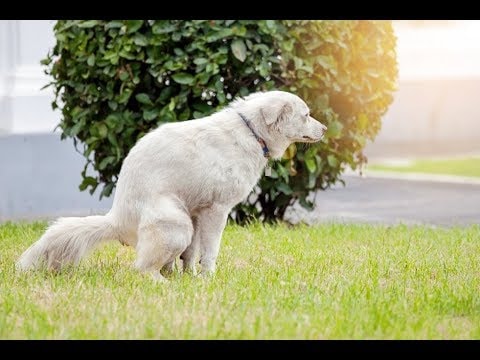
- Fluid and electrolyte abnormalities: dehydration, hypokalemia, hypercalcemia.
- Metabolic causes: hypothyroidism, hyperparathyroidism
- Drug-induced causes: Opiates, anticholinergic, diuretics, phenothiazine.
- Stress and physiological problems.
- Dehydration.
- Age: older dogs are more prone to constipation
- Digestive tract tumors.
- Anal gland tissues.
- Central nervous system disorder.
- Orthopedic disorders.
- Surgery: Different types of surgery may cause constipation. In this situation, you may call your veterinarian for the observation of the post-surgical period.
Clinical Signs of Constipation in Dogs
Constipated animals usually fail to defecate for several days. The signs of constipation include:
- Tenesmus or frequent attempts to defecate you may be noticed.
- Physical examination findings include a distended and firm colon.
- Dyschezia means painful or difficult defecation.
- Dogs are lethargic, dehydrated, and week.
- The hair coat may appear dull, and the mucous membrane becomes hyperemic.
- Lack of defecation for a few days.
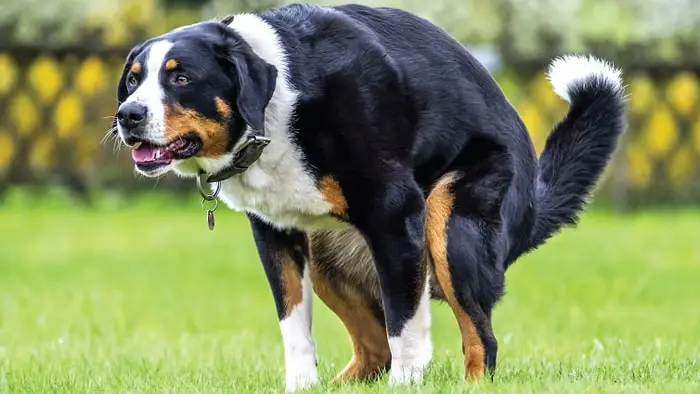
- Dry, hard stools which feel like pebbles when you pick them up.
- Bloody stool.
- Mucous with stool.
- Discomfort.
Dog’s Digestion and Dogs Prone to Constipation
The dog has a large stomach and a relatively short intestinal tract, an ideal arrangement for an opportunist hunter and scavenger. Food breakdown starts in the stomach, but almost all the digestion occurs in the intestines. The liver detoxifies unwanted products, while indigestible material and waste travel to the large intestine and are excreted.
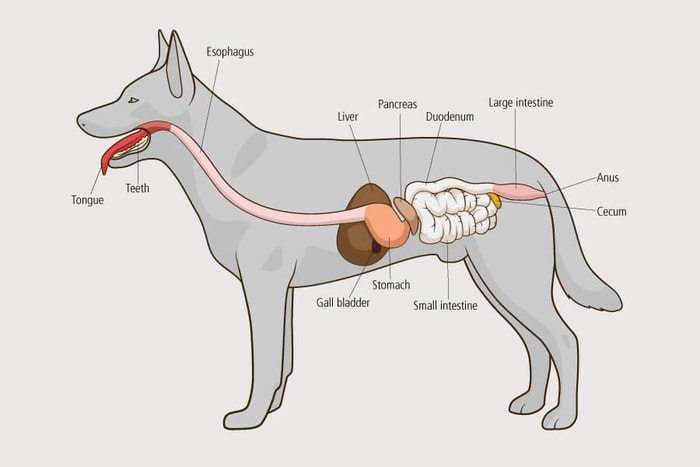
Constipation may occur in any age of dogs, but it is more prone in aged dogs. The situation is caused by electrolyte imbalance and or kidney problems. Another cause of constipation is enlarged prostate in older dogs. Blocked anal glands, abscessed anal glands, swallowed bones, pelvic fracture, bowel nerve damage may also lead to your dogs’ constipation.
Diagnosis of Dogs Constipation
Your vets performed the diagnosis of constipation in dogs. In most cases, he will be diagnosed based on:
- Medical history and physical examination findings.
- In addition to abdominal palpation, digital rectal examination, and neurologic examination,
- A complete blood count should be done when necessary for the confirmatory diagnosis.
- In advanced cases, an abdominal ultrasound may be performed by your vets to identifying the cause of your dog’s constipation.
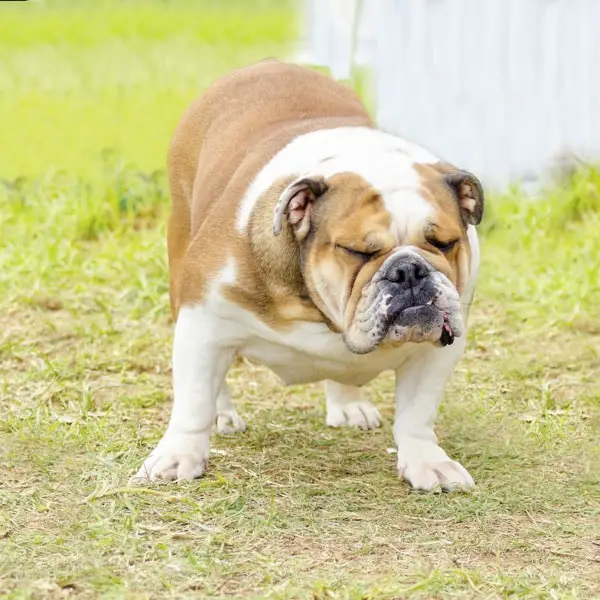
What Home Remedy Can I Give My Dog for Constipation?
When your dogs just started constipation, no more than one or two days- in that time, you should follow some home remedies. Call your experts before adding any supplements, and most of the time, dogs’ constipation may easily be handled at home with a lifestyle adjustment.
- Pumpkin.
- Aelovera.
- Canned dog food is very effective and may help regulate the digestive system.
- Give more amount of fiber to your dog’s diet.
- Medications such as a laxative or stool softener.
- Provide soft food and herbs.
- Powdered fiber supplements.
- Adequate hydration: Make sure your pets have access supply to fresh water and electrolyte supplements.
- Maintain proper exercise.
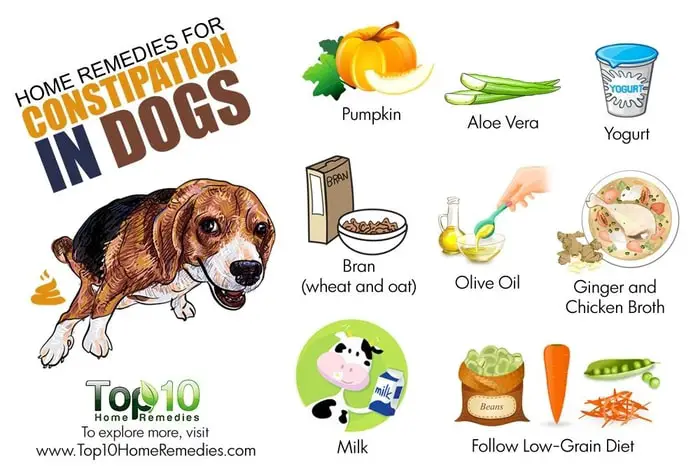
Veterinary Treatment and Prevention for Constipation in Dogs
Call your veterinarian in most extreme cases and require medical interventions that are very important for your dogs.
- Treatment can be performed by enemas- warm tape water, isotonic saline, solution, mineral oil suppositories- glycerin, docusate sodium.
- Some oral cathartics may be prescribed- coarse bran, white petroleum, lactose, bisacodyl.
Final Advice on Constipation in Dogs
Constipation in dogs is an infrequent problem; keep your dogs under control through a well-balanced diet, regular exercise, and supply of fresh water. A fiber supplemented diet or laxative medication often sufficient to prevent constipation. Clean, fresh water should be available to encourage defecation.